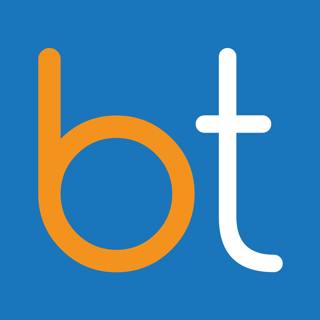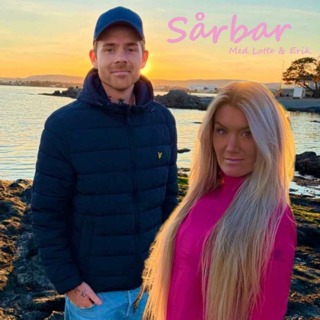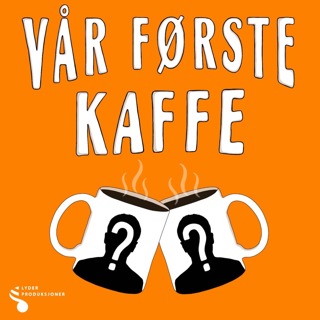
Ep. 243 Better Abscess Drainage with Dr. John Pavlus
In this episode, our hosts Drs. Michael Barraza and Aaron Fritts interview Dr. John Pavlus about his methods of drain placement, monitoring, and removal, as well as his vision to design an ideal drainage system. --- CHECK OUT OUR SPONSOR Medtronic Abre Venous Stent https://www.medtronic.com/abrevenous --- EARN CME Reflect on how this Podcast applies to your day-to-day and earn AMA PRA Category 1 CMEs: https://earnc.me/5KfOLv --- SHOW NOTES In this episode, our hosts Drs. Michael Barraza and Aaron Fritts interview Dr. John Pavlus about his methods of drain placement, monitoring, and removal, as well as his vision to design an ideal drainage system. Dr. Pavlus became interested in abscess drains when he noticed that across different institutions had very different indications, types, and methods of putting in drains. Dr. Pavlus prefers to place drains under ultrasound guidance, and he will also obtain a CT image afterwards to ensure the drain is in place. The doctors discuss their favorite guidewires to use: Dr. Pavlus prefers the Coons wire and Dr. Barraza prefers the Amplatz wire. For deep pelvic cul-de-sac abscesses, Dr. Pavlus describes how he obtains transgluteal access and uses a Hawkins needle. Liver abscesses can be challenging, due to their variety of drainage contents (hematoma, bile, necrotic material), and increased time of drainage. We also discuss the debate between suction bulbs and gravity drainage bags, noting that research studies and personal experiences have not shown significant differences in the rate of fistula formation with either method. One exception is post-operative spinal drainage, where using suction could confer the risk of removing CSF. To assess when a drain needs to be removed, Dr. Pavlus monitors the output and obtains a CT. He prefers to take ownership of drain care and remove drains that he originally placed, but if needed, he also collaborates with trauma surgeons to ensure that drains and sutures are removed properly. Dr. Pavlus also recognizes the need to standardize follow up care for drains. Dr. Barraza describes a workflow for drain checks at his fellowship site, which included daily rounds and a standardized checklist for each patient. Finally, Dr. Pavlus speaks about his ongoing mission to design an ideal drainage system for various dwell times, viscosity of contents, and catheter sizes.
16 Sep 202248min

Ep. 242 Image-Guided Headache Interventions with Dan Nguyen
In this episode, guest host Dr. Jacob Fleming interviews Dr. Dan Nguyen about MSK and neurologic pain interventions, specifically how he evaluates and treats different types of headaches at his practice. --- CHECK OUT OUR SPONSORS Athletic Greens https://www.athleticgreens.com/backtablevi RADPAD® Radiation Protection https://www.radpad.com/ --- EARN CME Reflect on how this Podcast applies to your day-to-day and earn AMA PRA Category 1 CMEs: https://earnc.me/Lt1TRq --- SHOW NOTES Dr. Nguyen left academia and the East Coast 6 years ago, where he trained in neurointerventional radiology and pain intervention to open his own practice in Oklahoma City after visiting Dr. Beall. He now has a clinic where he sees musculoskeletal and neurologic pain patients. He enjoys the long term relationships he has built with many patients in his practice. He still does a degree of diagnostic work so as not to lose his skills. Next, Dr. Nguyen discusses how he evaluates and treats headaches as a neurological pain interventionalist. Understanding the neuroanatomy of the face is key. He tries to understand the presentation of the patient’s headaches, whether it is located above the eyebrow, near the ear or at the jaw. He treats cervicogenic headache, trigeminal neuralgia and occipital neuralgia with a diagnostic block, radiofrequency ablation and neuromodulation. He also treats migrainous headaches. After determining whether the pain is musculogenic or neurogenic, he does a trigger point injection or a test injection of the nerve, followed by RFA and neuromodulation. Dr. Nguyen tells us his approach to trigeminal neuralgia workup. There are three branches, and the Gasserian ganglion (trigeminal ganglion) lies deep to the foramen ovale. To approach it, he usually tries to target the most peripheral nerve branch. For V1, he evaluates the supraorbital, supratrochlear nerves, which you can see with ultrasound. For V2, he evaluates the infraorbital with ultrasound. The foramen rotundundum requires CT guidance to access. For V3 he evaluates the mental and alveolar nerves or the foramen ovale. He does diagnostic blocks, and if this provides relief to the patient they discuss radiofrequency ablation. He advises operators to take the longest path to the nerve to ensure the ablative needle is fully buried under the skin to avoid burns. He also discusses the rare outcome of anesthesia dolorosa which can cause facial numbness and pain after ablation of the Gasserian ganglion. He says that for most of his patients, they accept this potential risk due to the more likely possibility of relief from the excruciating pain they experience with trigeminal neuralgia. --- RESOURCES Dr. Nguyen Twitter: @neuroradiology Narouze: Interventional Management of Head and Face Pain https://link.springer.com/book/10.1007/978-1-4614-8951-1 American Society of Spine Radiology: https://assrannualmeeting.org American Society of Neuroradiology: https://www.asnr.org/annualmeeting/
12 Sep 202257min

Ep. 241 Emerging Techniques of Advanced Ultrasound in No Options CLTI Patients with Dr. Miguel Montero-Baker
In this episode, guest host Jill Sommerset interviews vascular surgeon Dr. Miguel Montero-Baker about his evolving use of ultrasound throughout his career in caring for critical limb-threatening ischemia (CLTI) patients. --- CHECK OUT OUR SPONSOR Boston Scientific Eluvia Drug-Eluting Stent https://www.bostonscientific.com/en-US/medical-specialties/vascular-surgery/drug-eluting-therapies/eluvia/eluvia-clinical-trials.html?utm_source=oth_site&utm_medium=native&utm_campaign=pi-at-us-de_portfolio-hci&utm_content=n-backtable-n-backtable_site_eluvia_1&cid=n10008043 --- EARN CME Reflect on how this Podcast applies to your day-to-day and earn AMA PRA Category 1 CMEs: https://earnc.me/BK45bf --- SHOW NOTES Dr. Montero-Baker starts by outlining his journey from training in Costa Rica, Germany, and Arizona, to building a multidisciplinary limb salvage center at Methodist Houston. Despite his geographic relocations, he is still very involved in endovascular education in Latin America through HENDOLAT, an online community and annual conference. Next, we delve into the uses for ultrasound during the workup stages for CLTI. Dr. Montero-Baker highlights the information that ultrasound can provide: locating the region and extent of disease, pursuing an open versus endovascular treatment approach, and the tools you will need. He points out that a lot of institutions currently only rely on pulse volume recording (PVR), ankle brachial index (ABI), and toe brachial index (TBI), and do not have access to a robust vascular lab for full ultrasounds. Dr. Montero-Baker discusses some hurdles preventing the widespread implementation of ultrasound, such as additional cost and variability in operators. However, he believes that ultrasound can be a phenomenal tool if practices can invest the time to train vascular technologists and implement its use. We frame the ultrasound conversation around incentives for each party: the technologist can achieve higher job satisfaction and further subspecialize, the treating physician can have a better understanding of each patient’s disease and management, and the institution can minimize extended stays and readmissions. Additionally, ultrasound is very useful when institutions are facing the global contrast shortage or treating patients with renal disease. Finally, we look at the pathophysiology of diabetic and chronic renal failure patients who have extreme below the knee and below the ankle disease. These patients with medial artery calcification patterns have very few treatment options and high limb loss rates. Dr. Montero-Baker describes a new method of pedal venous access for deep vein arterialization. --- RESOURCES BackTable en Espanol- Enfermedad Arterial Periférica y Salvamento de Extremidades en la Comunidad Latino Americana: https://www.backtable.com/shows/vi/podcasts/%20v/enfermedad-arterial-periferica-y-salvamento-de-extremidades-en-la-comunidad-latino-americana Dr. Miguel Montero-Baker’s Twitter: https://twitter.com/monteromiguel HENDOLAT: https://hendolat.com/ Society for Vascular Ultrasound:
9 Sep 202250min

Ep. 240 Changing VIR Training Paradigms with Dr. Zaeem Billah, Dr. Kartik Kansagra, and Dr. Geogy Vatakencherry
In this episode, guest host Dr. Donald Garbett interviews Drs. Geogy Vatakencherry, Zaeem Billah, and Kartik Kansagra about the IR integrated residency, how it’s evolving, and what students should be doing to prepare for this rigorous training program. --- CHECK OUT OUR SPONSOR Medtronic IN.PACT 018 DCB https://www.medtronic.com/018 --- EARN CME Reflect on how this Podcast applies to your day-to-day and earn AMA PRA Category 1 CMEs: https://earnc.me/5RwqRC --- SHOW NOTES We begin by discussing the VIR program at Kaiser LA. As the program director, Dr. Vatakencherry discusses how he built his residency program and how it has evolved since the inception of the integrated iR residencies. One integral part of this program is weekly continuity clinic, starting in your first year. Dr. Kansagra brought up the idea to Dr. Vatakencherry after noticing that other surgical specialties and interventional cardiology were doing this. This model allows residents to develop longitudinal relationships with patients, understand disease progression and the importance of preventive care and nonoperative management. Next, Dr. Billah discusses his training at Kaiser LA, as a resident in the first year of the new integrated IR residency. They have a categorical program, with a surgery intern year included. He highly suggests that all IR residents should do a surgery year due to its similarity to IR and the skills it provides you. Whether on DR, ICU or IR, all IR residents have daily IR conferences. ICU training begins in the first year, which includes MICU, SICU and CCU rotations. In the PGY-5 year, they get consecutive rotations in stroke neurology and neurointervention. Finally we discuss the future of the VIR integrated residency. Dr. Vatakencherry believes that clinic time is quintessential during IR residency to understand the nuances of “should vs. could” when it comes to operative intervention. In clinic, not only do you see what you do well but more importantly, you see what you don't do well and how you can fix that. This clinical experience cannot be replicated in a year of fellowship. Lastly, Dr. Vatakencherry gives some extremely pertinent advice to fourth year medical students applying to IR integrated residency.
5 Sep 20221h 5min

Ep. 239 Medicinal Cannabis: The Current State with PureVita Labs Founder Dr. Jason Iannuccilli
In this episode, our host Dr. Aaron Fritts and Dr. Jason Iannuccilli dive into the history, science, and future directions of medical cannabis. We discuss Dr. Iannuccilli’s founding vision for PureVita Labs, a company focused on developing standardized testing for cannabis products and ensuring consumer safety. --- CHECK OUT OUR SPONSOR Athletic Greens https://www.athleticgreens.com/backtablevi --- EARN CME Reflect on how this Podcast applies to your day-to-day and earn AMA PRA Category 1 CMEs: https://earnc.me/A8oPKA --- SHOW NOTES Dr. Iannuccilli starts by describing his former interventional oncology practice in Rhode Island. His interest in medical marijuana grew as he frequently found himself in conversations with terminal cancer patients who sought his medical advice to navigate the variety of products. As he learned more about this craft industry, he realized that there could be significant variations between each product type, brand, and even within each batch. With co-founders Dr. Jonathan Martin and Dr. Stuart Procter, he started the entrepreneurial journey of building a laboratory that uses innovative techniques to test and label products with accuracy. The team hopes to continue growing their services and eventually through artificial intelligence, build a platform that can recommend products to each individual consumer that will ensure them a predictable experience based on their desired therapeutic outcome. Throughout this episode, we discuss social stereotypes and political challenges that the cannabis industry has faced in the past decades. We move past the mistaken idea that active ingredients of marijuana always cause mental dullness and lethargy, and we bring the conversation down to a molecular level to discuss CB1 receptors and anti-inflammatory benefits, and pain relief. Finally, the doctors discuss fundraising for a nontraditional business pursuit. Dr. Iannuccilli shares how the vape crisis was a pivotal point– it served as a wake-up call for consumers and investors, leading to higher recognition of the importance of more stringent and standardized product testing. PureVita Labs has started to fundraise through friends and family with convertible notes, which are structured loans with set interest rates that allow the investor to either pull out their initial investment plus interest, or roll that value into equity once the company has established its valuation. --- RESOURCES Pure Vita Labs: https://purevitalabs.com/ The Bartholomewtown Podcast- Ep. 101, “Inside RI Cannabis” https://btown.buzzsprout.com/163601/11221697-inside-ri-cannabis-presented-by-purevita-labs-cannabis-101-part-1 WHOOP: https://www.whoop.com/ The Peter Attia Drive Podcast: https://peterattiamd.com/podcast/
2 Sep 20221h 11min

Ep. 238 Pain and Veins: A Unique OBL Practice with Dr. Keerthi Prasad
In this episode, guest host Dr. Shamit Desai interviews Dr. Keerthi Prasad about his path to starting an IR practice alongside interventional pain specialists. --- CHECK OUT OUR SPONSORS Medtronic VenaSeal https://www.medtronic.com/venaseal Boston Scientific Lab Agent https://www.bostonscientific.com/en-US/customer-service/ordering/lab-agent.html --- SHOW NOTES This unique collaboration started after Dr. Prasad finished fellowship. He describes the support and investment that his anesthesiologist partners provided in helping him launch IR service lines in their existing practice. On the pain management side, he primarily performs vertebral augmentation, DRG stimulation, and nerve blocks. He has also expanded his services into vein care, since venous disease is often concomitant with PAD, wound care, and pain. Dr. Prasad emphasizes the value of focusing on specific procedures and disease states in order to provide the best and most up to date clinical care possible. This can also set you apart from other competitors and help patients identify you as their vascular specialist. Dr. Prasad delves into the infrastructure of their centers. Their high volume of patients requires close coordination of all office and medical staff. To retain highly trained medical staff, he recommends investing in their training, minimizing office politics, and granting sufficient autonomy. Since 2016, the Centers for Pain Control and Vein Care has expanded to multiple locations in northwest Indiana. Dr. Prasad closes the episode by speaking about practice marketing and forming new referral networks. He emphasizes the importance of identifying if there is a true clinical need to perform each procedure and following up with patients and referring doctors. --- RESOURCES Centers for Pain Control and Vein Care: https://www.discover-cpc.com/
29 Aug 202240min

Ep. 237 Endovascular Treatment of Stroke Training: An Update with Dr. Martin Radvany and Dr. Venu Vadlamudi
In this episode, guest host Dr. Venu Vadlamudi interviews Dr. Martin Radvany about where neurointerventional training stands in 2022, including stroke training for residents, barriers that IRs face in finding training after residency, and future directions of stroke care. --- CHECK OUT OUR SPONSOR RapidAI http://rapidai.com/?utm_campaign=Evergreen&utm_source=Online&utm_medium=podcast&utm_term=Backtable&utm_content=Sponsor --- EARN CME Reflect on how this Podcast applies to your day-to-day and earn AMA PRA Category 1 CMEs: https://earnc.me/s3zGTV --- SHOW NOTES We begin by discussing stroke training in neurointerventional radiology. The Society of Interventional Radiology (SIR) has been prioritizing stroke training for IRs for years, with their former Clots Course and current Stroke Course, with Dr. Vadlamudi and Dr. Radvany as the directors of the course. This course occurs at the annual SIR meetings. Courses such as these are necessary because many residents aren’t trained in neurointervention but when they get out in the community the need is there and their employers often expect them to be able to provide stroke care. Dr. Vadlamudi hopes to grow the stroke course and eventually break away from the annual SIR meeting into it’s own free-standing course, such as has been done with the Y90 course. Next, we cover some of the barriers to IRs getting involved in stroke care. Often, practitioners with years of experience want or need to start performing neuroendovascular interventions but didn’t get a lot of experience in their training. Industry support is an important area that requires some growth to be able to support this pathway for IRs already in practice. Simulators are also a key aspect in training, and we discuss the possibilities of leveraging this for stroke training. By bringing patient specific anatomy into the simulator, anyone could use this to train in stroke thrombectomy and be able to practice with a patient's unique anatomy before performing the actual case. Finally, we discuss what trainees should expect going forward in IR residency and neuro fellowship. Interventional radiology is becoming very clinical, and it is important for trainees to focus on this. Spend the time in the ICU and on the floor. Knowing how to take care of your patients is essential in IR; we need to do more than just master the procedures. There are many ways to get training in stroke intervention. Mentorship at all levels is important and encouraged to push the field forward. --- RESOURCES Outcomes of Stroke Thrombectomy Performed by Interventional Radiologists versus Neurointerventional Physicians: https://pubmed.ncbi.nlm.nih.gov/35150837/
26 Aug 202254min

Ep. 236 Building a Cross-Specialty Vascular Practice with Dr. Chad Laurich and Dr. Neal Khurana
In this episode, host Dr. Aaron Fritts interviews Drs. Chad Laurich and Neal Khurana about how they looked past traditional competition between IR and vascular surgery to build a multidisciplinary practice to meet market need and provide comprehensive patient care for an underserved community in South Dakota. --- CHECK OUT OUR SPONSORS Viz.ai https://www.viz.ai/ Boston Scientific Nextlab https://www.bostonscientific.com/en-US/nextlab.html?utm_source=oth_site&utm_medium=native&utm_campaign=pi-at-us-nextlab-hci&utm_content=n-backtable-n-backtable_site_nextlab_1&cid=n10008040 --- SHOW NOTES We begin by discussing how Dr. Khurana joined Dr. Laurich at his practice in South Dakota. When Dr. Laurich opened his solo practice, he realized there was a lack of medical care in the community and he knew he would not be able to meet the demand on his own. He decided he wanted to bring an IR to his group due to his respect for IR and the breadth of procedural and clinical knowledge they would bring. He knew that their combined skills would provide better patient care than hiring another vascular surgeon. Next, we discuss the concept of collaboration over competition in vascular surgery and interventional radiology. Dr. Khurana advises that in order to enter into a partnership such as this, you have to understand that you are not the only one able to do endovascular work, that there are vascular surgery and interventional cardiology colleagues who are extremely talented in vascular intervention. All egos must be put aside, and you must never forget that the goal is to help the patient. Dr. Khurana joined Dr. Laurich with this mindset and an eagerness to learn as much as he could to benefit their community. Dr. Laurich and Dr. Khurana hope this collaborative model grows in popularity among all endovascular specialists. The OBL model affords physician autonomy, excellence in patient care, and provides an out from the burnout caused by the hospital grind. What ends up happening at a well designed and operated OBL is that everyone wins: physicians, patients and staff. This VS-IR powerhouse hopes to provide master courses in the future for physicians to learn how to master certain diseases or procedures that they need to run a successful multidisciplinary endovascular OBL. --- RESOURCES Ep. 129: OBL/ASC Business Pearls: https://www.backtable.com/shows/vi/podcasts/129/obl-asc-business-pearls Ep. 205: Update on Reimbursement Cuts for the OBL/ASC: https://www.backtable.com/shows/vi/podcasts/205/update-on-reimbursement-cuts-for-the-obl-asc
22 Aug 202253min





















